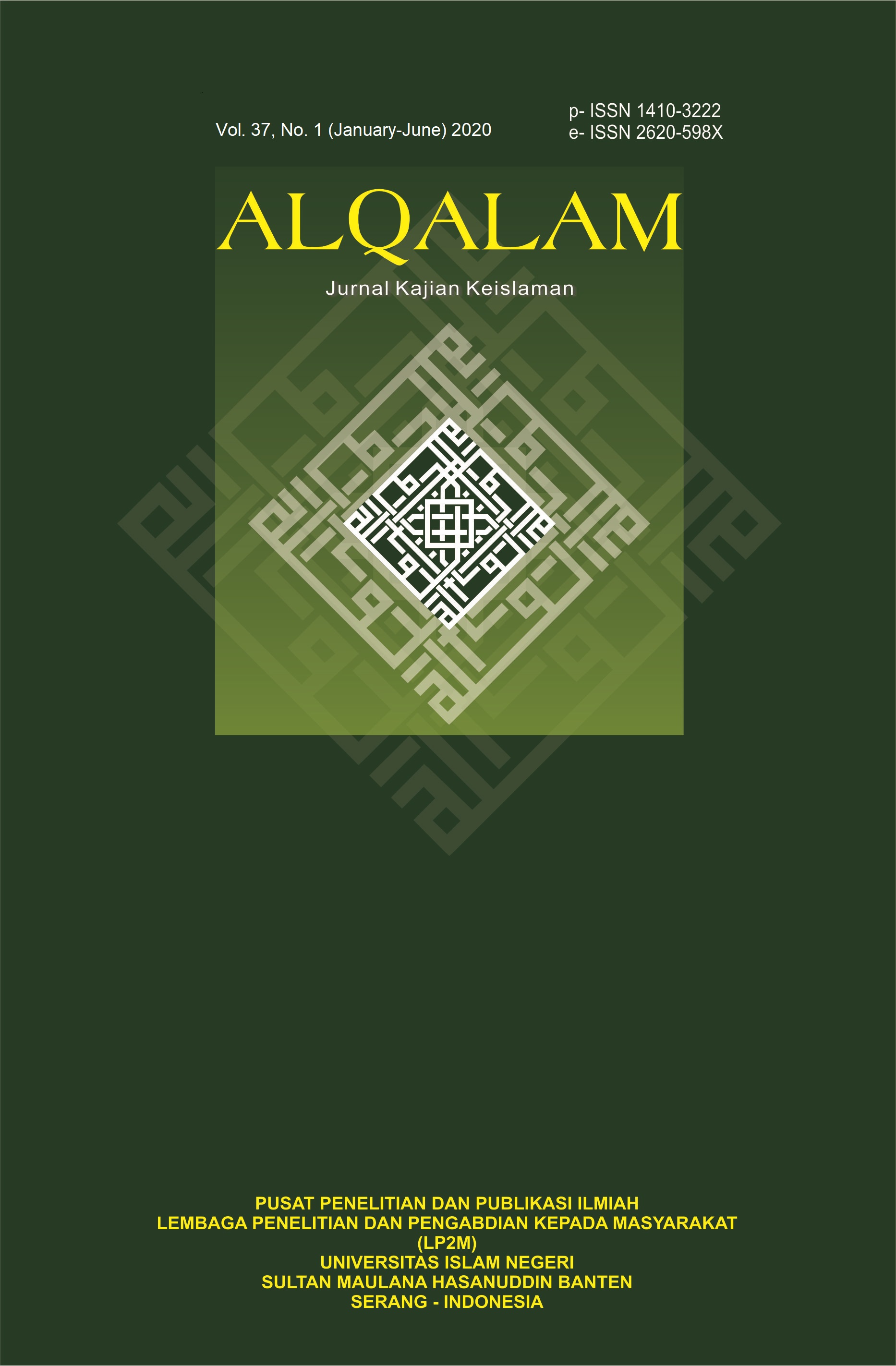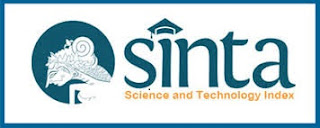The Caliphate Materials of Fiqh Lesson at The Publisher of PT Karya Toha Putra Semarang
DOI:
https://doi.org/10.32678/alqalam.v39i1.5014Keywords:
Khilafah, Fiqh Class XII, 2013 Curriculum, Re-Format MaterialAbstract
This study examines the material for the caliphate in fiqh class XII at the publisher of PT Karya Toha Putra Semarang. In theory, the Khilafah material in this book is part of the discipline of siyasa fiqh which discusses the system of state and government. This book has given one side of the meaning of the caliphate in academic studies, the meaning of the caliphate varies among Islamic scientists. So that when it is presented as a class XII subject matter, there are various possibilities of having an exclusive view of the caliphate, so that when it becomes a subject of discussion among students it will mean that the Indonesian state is not a form of the caliphate and may carry out jihad, make changes or carry out resistance as in the next chapter in this book. talk about jihad. The purpose of this study is to examine some parts of the caliphate material that have the potential to develop negative perceptions of the Indonesian state system in Madrasah Aliyah students. In addition, this study also examines the perspective of the 2013 curriculum on the Khilafah material in the book written by Mundzier and Suparta. This type of research is a research library using a qualitative approach. The research steps are collecting research data related to the research material, outlining the material being studied, and analyzing and concluding the research. The results of the study indicate that the material for the caliphate in this book needs to improve the understanding of the caliphate which is more comprehensive than scientists, including Indonesian scientists. second, this material is still contrary to the philosophy of the 2013 curriculum which explains that education is rooted in the cultural values of the Indonesian nation.
Downloads
References
Arifin, Z. (2017). Konsep Dan Model Pengembangan Kurikulum (5th Ed., Pp. 1–322). Pt. Remaja Rosdakarya.
Asmawi. (2018). Filosofi Hukum Khilafah (Tinjauanontologis, Epistemologis Dan Aksiologis). Ahkam, 6(2), 215–240.
Az-Zuhaili, W. (2010). Jihad, Pengadilan Dan Mekanisme Mengambil Keputusan, Pemerintahan Dalam Islam. In Fiqh Islam Wa Adillatuhu (Pp. 1–540). Gema Insani.
Fauzi, M. (2005). Konsep Negara Dalam Perspektif Piagam Madinah Dan Piagam Jakarta. Al-Mawarid, 13(0), 85–101.
Fu’ad Jabali. (2010). Sahabat Nabi, Siapa, Ke Mana, Dan Bagaimana. In Mizan Media Utama (Pp. 1–623).
Ghozali, I. (2020a). Agama, Politik Dan Negara (Pp. 1–265). Rizquna.
Ghozali, I. (2020b). Aliran Pemikiran Politik Islam Indonesia; Muhammadiyah Dan Nu Vs Fpi Dan Hti. Al-Qalam, 37(1), 27–48.
Hasim, M. (2015). Potensi Radikalisme Di Sekolah Studi Terhadap Buku Pendidikan Agama Islam Sekolah Dasar. Edukasi: Jurnal Penelitian Pendidikan Agama Dan Keagamaan, 13(2), 255–268. Https://Doi.Org/10.32729/Edukasi.V13i2.242
Helmi Candra, Zulfahmi Alwi, Rahman, Imam Ghozali, M. I. (2021). Pengaruh Politik Sunni Dan Syi’ah Terhadap Perkembangan Ilmu Hadist (Pp. 20–21). Rajagrafindo Persada.
Indonesia, M. A. R. (2013). Peraturan Menteri Agama Republik Indonesia No 000912 Tahun 2013 Tentang Kurikulum Madrasah 2013 Mata Pelajaran Pendidikan Agama Islam Dan Bahasa Arab. 2011, 1–280.
Kaelan. (2003). Pendidikan Pancasila (Pp. 1–285). Paradigma.
Kurniawan, A. (2018). Metodologi Penelitian Pendidikan (N. N. M (Ed.); Pp. 1–408). Pt.Remaja Rosdakarya.
Madjid, N. (2008). Islam Kemodernan Dan Keindonesiaan (Pp. 38–39). Mizan Media Utama.
Munip, A. (2012). Menangkal Radikalisme Di Sekolah. Jurnal Pendidikan Islam, I(1), 159–182.
Munir, A. A. A. (2018). Agama, Politik Dan Fundamentalisme. Al-Afkar, 1(1), 149–169. Https://Doi.Org/10.5281/Zenodo.1161572
Nizar, S. (2009). Filsafat Pendidikan Islam : Telaah Sistem Pendidikan Dan Pemikiran Para Tokohnya (P. 192). Kalam Mulia.
Nurgrahani, F. (2014). Metode Penelitian Kualitatif Dalam Penelitian Pendidikan Bahasa.
Sadjali, M. (2011). Islam Dan Tata Negara Ajaran, Sejarah Dan Pemikiran. In Ui-Press (P. 140).
Sunaryo, A. (2018). Ushul Fiqh Dan Perubahan Sosial Telaah Kritis Epistemologi Fiqh Kontemporer. In Cetakan I (P. 1). Cv. Pustaka Ilmu Group.
Thohiri, M. K. (2019). Radikalisme Islam Dan Deradikalisasi Di Sekolah (Studi Multi Kasus Di Sma Negeri 1 Kedungwaru Dan Smk Negeri 1 Bandung Kabupaten Tulungagung).
Wahid, A. (2019). Musuh Dalam Selimut. In A. Wahid (Ed.), Ilusi Negara Islam (Ekspansi Gerakan Transnasionnal Di Indonesia ) (P. 19). Gerakan Bhineka Tunggal Ika.
Wahyudin, D. (2014). Manajemen Kurikulum (Pp. 1–34). Pt. Remaja Rosdakarya.
Zada, K. (2015). Radikalisme Dalam Paham Keagamaan Guru Dan Mata Pelajaran Fikih Di Madrasah Aliyah Radicalism. Penamas; Jurnal Penelitian Keagamaan Dan Kemasyarakatan, 28(1), 1–20.
Zainuddin, M. S. Dan D. (2011). Pendidikan Agama Islam Fikih Kurikulum 2008 Madrasah Aliyah Kelas Xii (Pp. 1–93). Karya Toha Putra.
Zainuddin, M. S. Dan D. (2016). Pendidikan Agama Islam Fikih Madrasah Aliyah Kelas Xii. Toha Putra.














